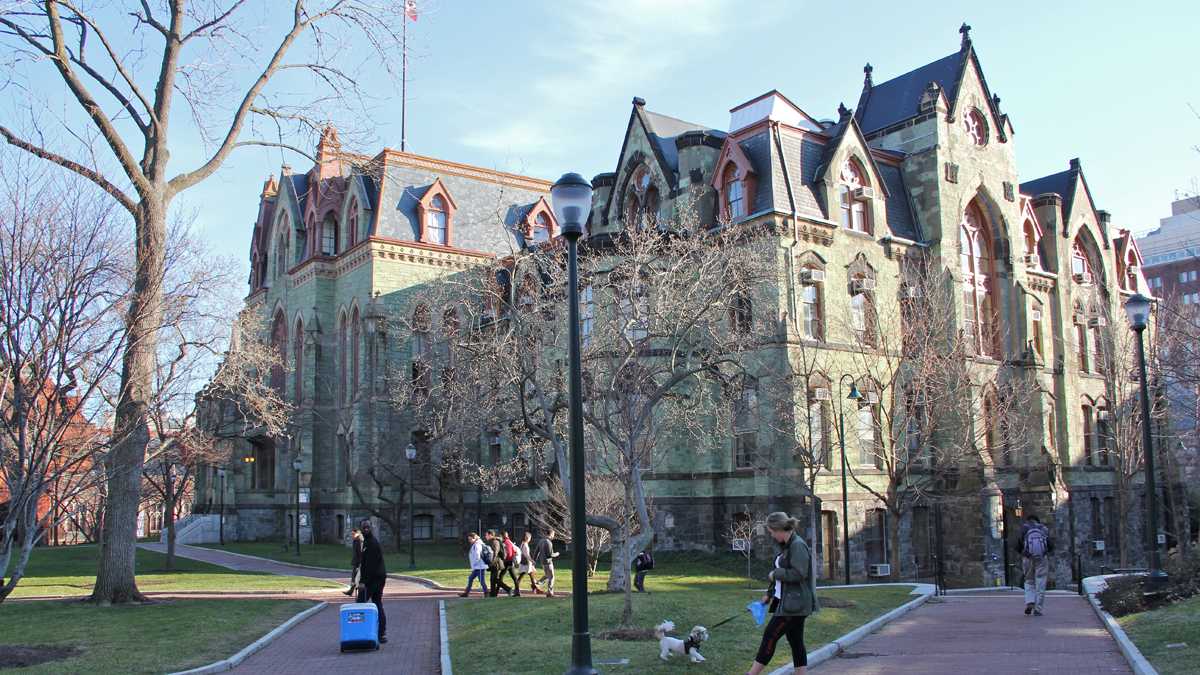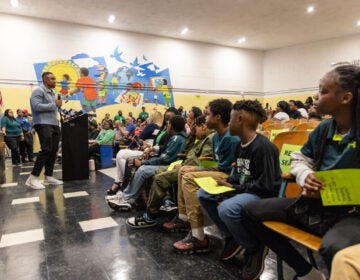Penn grad students move toward unionization

Graduate students who work for the University of Pennsylvania are taking steps to unionize. (NewsWorks file photo)
Graduate student working at the University of Pennsylvania moved toward forming a union Tuesday as they filed an election petition with the National Labor Relations Board.
The petition — which requires the assent of at least 30 percent of the university’s graduate student workers — could trigger a vote on whether to join the American Federation of Teachers, a national union.
This is the second time in 15 years Penn’s graduate employees have attempted to unionize.
A 2003 effort died on the vine when the NLRB decided in a similar case that graduate students at private universities were not eligible to form unions, according to the Daily Pennsylvanian.
In 2016, the NLRB reversed itself and ruled that a group of student workers at Columbia University could collectively bargain. That ruling set off a burst of campus unionizing at elite universities such as Princeton, Harvard, and the University of Chicago.
At Harvard, the university and union organizers signed a pact delineating exactly what student employees would be eligible for a recognition vote — the final step toward actually forming a union. By contrast, the University of Chicago formally objected to unionization efforts on its campus, and the case is now before the NLRB.
Penn officials did not say Tuesday how they will proceed, only that they were reviewing the election petition.
“We view graduate students as students and our future colleagues rather than employees, and we believe we can better support them without the intervention of a labor union,” said spokeswoman Phyllis Holtzman in a written statement.
A group called Graduate Employees Together-University of Pennsylvania or GET-UP is spearheading unionization efforts at Penn. On its website, GET-UP said it’s aiming to win improved health care and a grievance process.
“Right now we don’t get to decide how we’re treated,” said Miranda Weinberg, a doctoral candidate in Penn’s Graduate School of Education and a GET-Up organizer. “We don’t get to decide things like our benefits. And what we’re looking for is a way to do that.”
Graduate employee terms vary from department to department, said Weinberg. Some students receive summer pay, others don’t. Some receive compensation through the first four years of their graduate education. Other contracts run longer, Weinberg said.
Indeed, that’s one reason some Penn students oppose the unionization process, arguing that a large union won’t be able to speak for students across the university’s 12 graduate schools.
Most unions that apply for recognition are successful, according to data published by the NLRB.
In fiscal year 2016, 2,029 groups filed petitions with the NLRB. Of those, 610 were withdrawn and 38 were dismissed by the NLRB.
The majority of petitions led to recognition elections where eligible employees vote yes or no on forming a union. In three-quarters of those votes, employees elected to unionize.
WHYY is your source for fact-based, in-depth journalism and information. As a nonprofit organization, we rely on financial support from readers like you. Please give today.





